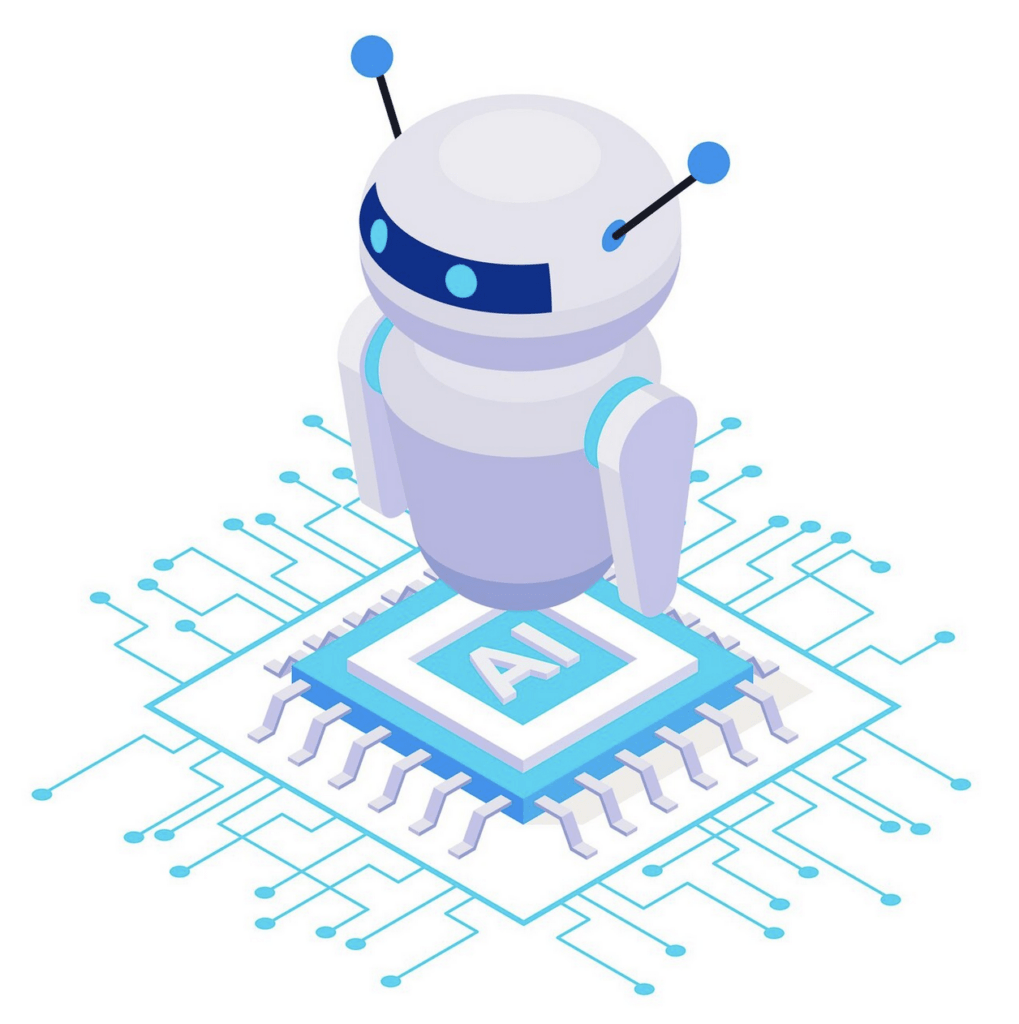What are the top 7 applications of Artificial Intelligence?

Artificial intelligence (AI) has transcended mere buzzword status. It is now seamlessly integrated into our daily existence, shaping every facet of society beyond the wildest dreams of just a few years ago. Artificial intelligence (AI) is catalyzing transformative shifts across many global sectors. Leveraging technological progress, AI’s diverse applications are reshaping our daily experiences. Integrating AI tools with various software and devices is digitizing our world. This blog will explore how AI is applied in robotics, healthcare, defense, and numerous other sectors.
AI finds applications across diverse domains, offering insights into user behavior and delivering data-driven recommendations. For instance, Google’s predictive search algorithm analyzes historical user data to anticipate search queries. Netflix utilizes prior user data to recommend the next movie, enhancing engagement and viewer retention. Meanwhile, Facebook leverages historical user data to auto-suggest tags for friends based on facial features in photos. Major corporations harness AI to streamline and enhance customer experiences.
The application of AI in the modern business world is vast and continues to grow, playing a pivotal role in enhancing efficiency, decision-making, and innovation. It helps businesses analyze vast amounts of data, offering valuable insights into customer behavior, market trends, and operational performance. AI degrees are sought after for training data analysts and data scientists. The demand for AI degrees has increased since its increasing application in different sectors.
Top Application of Artificial Intelligence
Here are the top 7 applications of Artificial Intelligence:
Artificial Intelligence in E-Commerce: Artificial Intelligence (AI) revolutionizes e-commerce in numerous ways. AI algorithms examine user data to deliver tailored product suggestions. increasing sales and customer satisfaction. AI-powered chatbots enhance customer support, offering quick responses and 24/7 availability. Dynamic pricing strategies adjust product prices based on demand, optimizing revenue. Virtual try-on features use AI to allow customers to visualize products, improving their online shopping experience. AI-driven analytics assist supply chain management, predict demand and manage inventory efficiently. Furthermore, AI enhances advertising by targeting specific audiences, making e-commerce more cost-effective. AI transforms e-commerce, creating a more tailored, efficient, and profitable online shopping environment.
Artificial Intelligence in Healthcare: Today, healthcare organizations heavily rely on AI-based software to manage a wide range of tasks, spanning from patient diagnoses to hospital data administration. With the healthcare sector generating a staggering 44 trillion gigabytes of data daily, the demand for advanced AI processors is paramount. These processors excel at extracting, manipulating, and drawing meaningful insights from this data.
In healthcare, AI and ML technologies play a pivotal role. AI algorithms within the systems excel at pattern recognition, surpassing human efficiency. They aid in patient data analysis, enhancing diagnostic accuracy. Real-time data, like blood pressure and body temperature, is collected by AI-based devices and transmitted to doctors remotely, saving healthcare providers and patients time.
AI-driven bots and assistants streamline processes, allowing doctors to allocate more time to patients. Furthermore, AI applications in healthcare benefit pathologists in gene and tissue analysis, leading to more precise disease diagnoses.
Artificial Intelligence in Marketing
Artificial Intelligence (AI) in marketing is a transformative force. It empowers businesses to analyze vast customer data, enabling highly targeted and personalized campaigns. AI-driven algorithms identify consumer preferences, predict trends, and optimize advertising strategies. Chatbots and virtual assistants enhance customer interactions, providing instant support and improving user experiences. AI also aids in content generation, enabling automated creation and distribution of tailored content. Moreover, it streamlines marketing operations by automating tasks like lead nurturing and analytics. AI redefines marketing by increasing efficiency, effectiveness, and customer engagement, allowing companies to stay competitive in the ever-evolving digital landscape.
Artificial Intelligence in Robotics: AI drives robotics by enabling machines to perceive, learn, and adapt. Robots equipped with AI can perform manufacturing, healthcare, and logistics tasks. They navigate environments, identify objects, and collaborate with humans. AI also plays a role in advanced machine learning and reinforcement learning, allowing robots to continually improve their capabilities, making them valuable in various industries.
Artificial Intelligence in the Automotive Industry: AI is transforming the automotive sector with self-driving cars and smart manufacturing. Machine learning and computer vision enable autonomous vehicles to navigate roads safely. In manufacturing, AI optimizes production processes, quality control, and supply chain management. Furthermore, AI enhances user experiences through voice recognition and predictive maintenance, making vehicles smarter and safer.
Artificial Intelligence in Banking: In the banking industry, AI is leveraged for fraud detection, customer service, and risk assessment. Chatbots and virtual assistants offer efficient customer support, while AI algorithms analyze transactions in real time, identifying potential fraud. AI also improves credit risk assessment, making lending more accurate and secure. Additionally, predictive analytics optimizes investment strategies, enhancing overall financial operations.
Artificial Intelligence in Defense: AI plays a vital role in military applications. It’s used in autonomous drones, which can perform surveillance and reconnaissance missions. AI also aids in threat detection, identifying patterns in data to enhance security. In addition, AI-driven cybersecurity systems protect sensitive information from cyberattacks. AI’s role in defense continues to evolve, providing advanced capabilities in intelligence gathering, decision-making, and threat mitigation.
The top seven applications of Artificial Intelligence (AI) are transforming industries and reshaping how we live and work. From healthcare to autonomous vehicles and robotics, AI is enhancing efficiency, enabling personalized experiences, and driving innovation. Artificial Intelligence’s capability to process vast amounts of data, recognize patterns, and adapt continuously makes it a powerful tool for the modern world. As AI technologies advance, we can expect even more remarkable applications, further revolutionizing how we interact with technology and improving our quality of life across various domains.
In a competitive job market, having an AI degree sets you apart from other candidates and demonstrates your commitment to mastering this complex and evolving field. If you aspire to build a career in the technical field, pursuing an AI degree can be your stepping stone towards a futuristic career!
